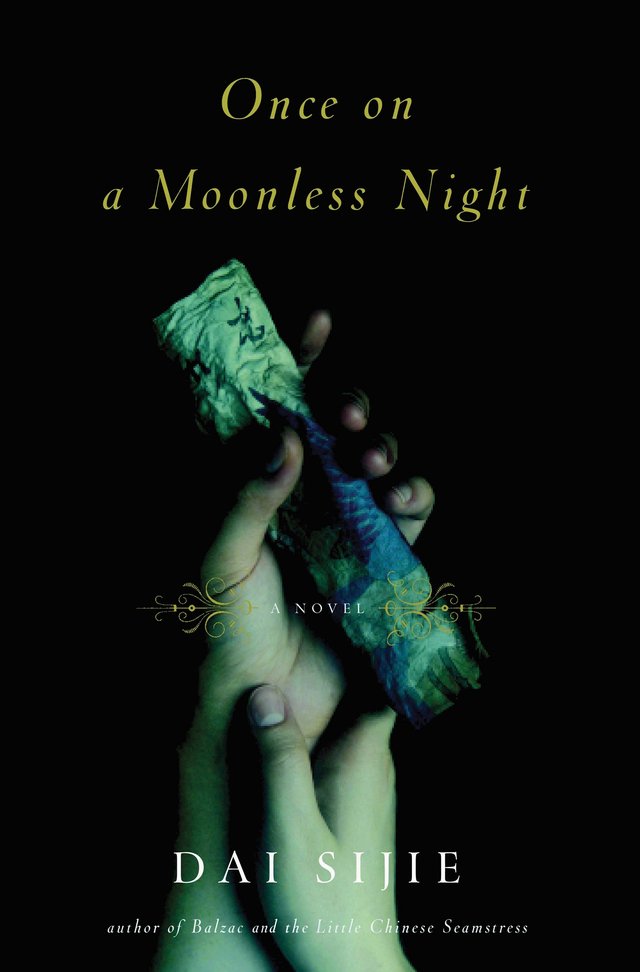17 Aug / Once on a Moonless Night by Dai Sijie [in San Francisco Chronicle]

 If you see a book cover with the name Dai Sijie on it, read the book.
If you see a book cover with the name Dai Sijie on it, read the book.
Dai’s delightful 2001 debut, Balzac and the Little Chinese Seamstress, about two young boys who discover a love for literature while sequestered in a re-education camp during Mao’s Cultural Revolution, became an international sensation. His 2005 follow-up, Mr. Muo’s Travelling Couch, introduced readers to a hapless Freud devotee who arrives in his native China from France determined to rescue his college sweetheart from political prison.
Dai, who was born in China and lives in France, returns with his latest novel, Once on a Moonless Night, which is his best – and most dense – novel, despite a mere 277 page-count. Attempting to decipher the many narrative threads in the story is no small feat, but well worth the challenge.
Here’s a skeletal summary: A French student of Chinese literature in late 1970s Beijing (Peking then) meets a green grocer named Tumchooq, who tells her about an ancient scroll inscribed with part of a lost Buddhist sutra written in a lost language – also called Tumchooq. The student – the unnamed narrator – falls in love with the grocer, gets pregnant, loses him when he disappears to visit his missing father, and leaves China in great despair, determined to forget all things Chinese by absorbing other languages and cultures.
Dai’s multilayered masterpiece, however, is far more complex – and rewarding – than a simple love story gone awry. With deft mastery, Dai seamlessly combines unexpected representations of the written word – centuries of problematic Chinese history both “official” and “real,” book passages from titles both published and imagined, legal testimonies and hidden memoirs, notebook jottings, private diary entries – to create an intricate treatise on the power of language. That Dai writes in French, his adopted tongue – and we are reading an English translation – only adds to the potency of language.
The unnamed narrator quotes a famous scholar, “in Chinese love stories the one who loves always starts by borrowing a book from the beloved,” and thinks she proves this theory wrong: “My love story began with a wilted yellow-green cabbage eaten away by a worm … a cabbage that Tumchooq … offered me out of generosity.” Although an actual book is not initially exchanged, the lovers’ relationship begins with borrowed language, as the French narrator learns to communicate with Chinese words. …[click here for more]
Review: San Francisco Chronicle, August 17, 2009
Readers: Adult
Published: 2009
